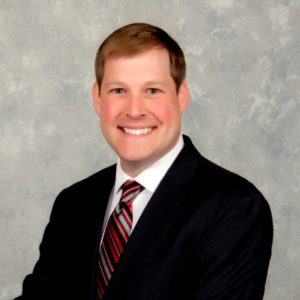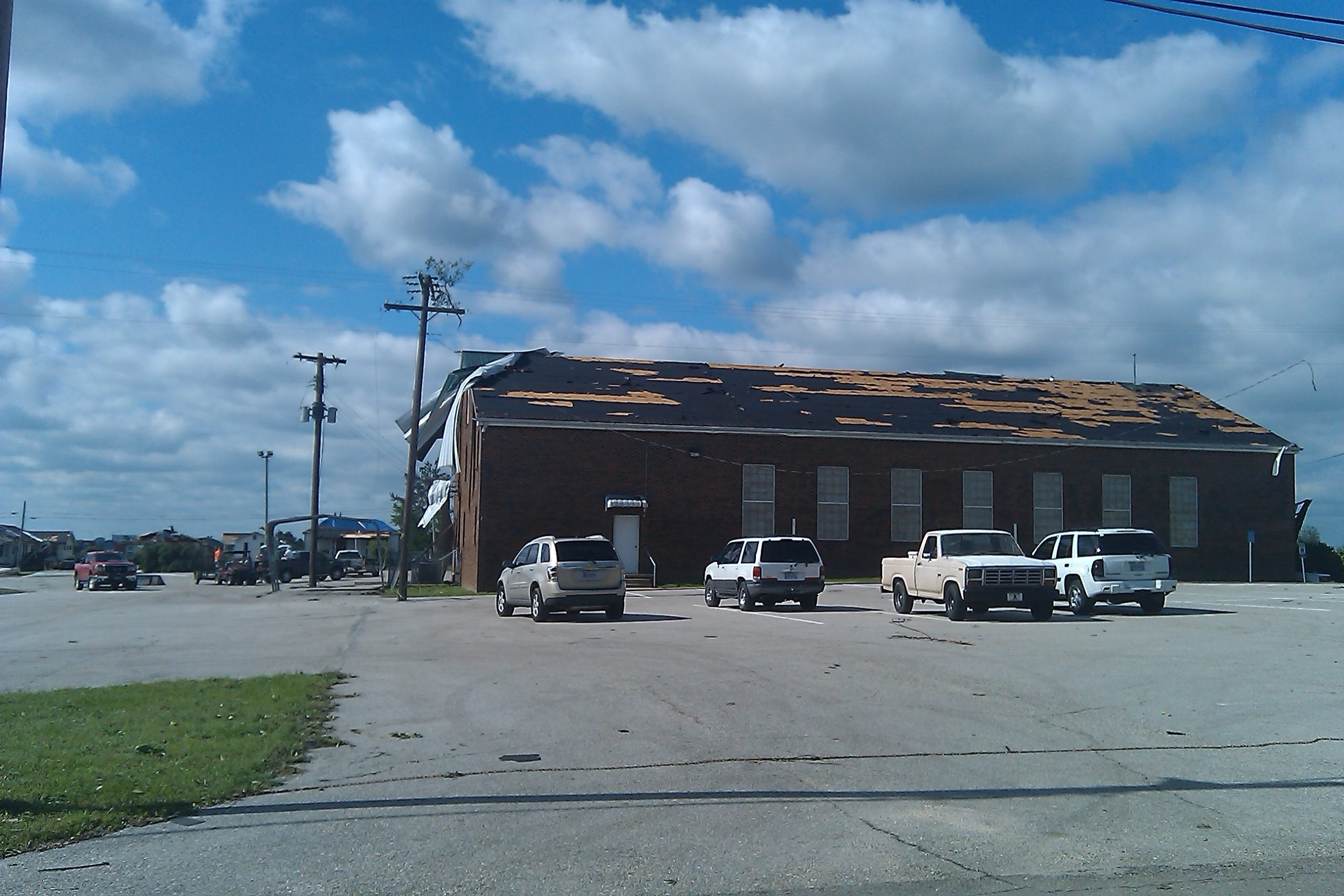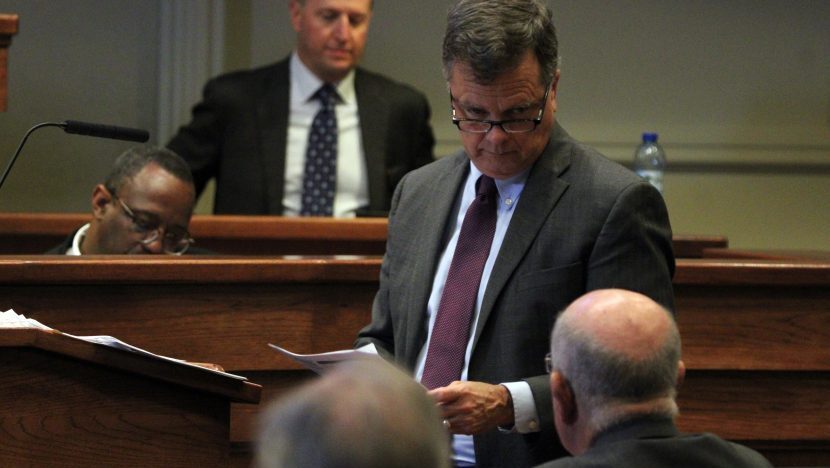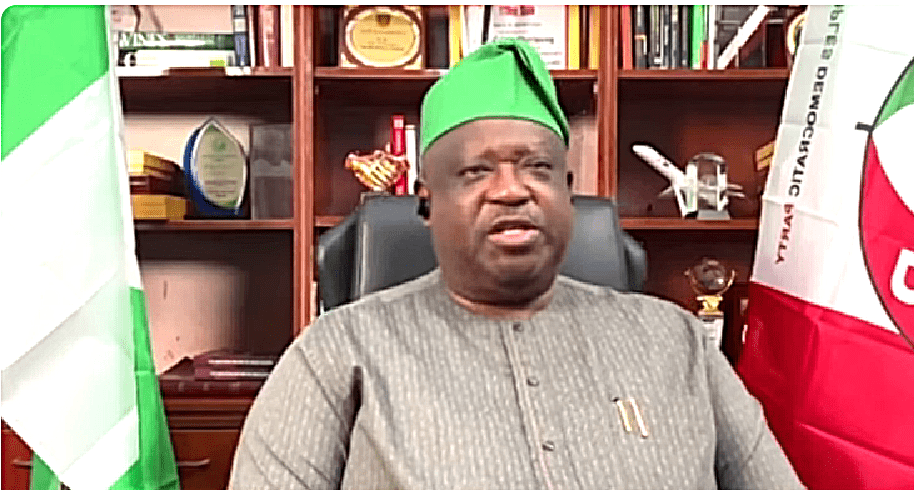Some 100 people huddled on top of broken glass inside the education building of Rosedale Baptist Church in Tuscaloosa, on April 27, 2011.
“We had no electricity, and the windows had been blown out. But it was shelter, and it was the only shelter around,” said Louis Johnson, pastor at the time.
Just a couple of hours before, a tornado had flattened housing units across the street and twisted the church’s sanctuary on its foundation.
And now another line of storms was coming, and all the neighbors were gathered in the only building still intact.
“I tried to go around and talk to the folks and console them,” said Johnson, who had only been Rosedale’s pastor for two months. “I had person after person ask things like, ‘Do you know what happened to my husband? He was in apartment 6B,’ or ‘Have you seen a 13-year-old boy?’ I would just say, ‘I don’t know where your son is or where your father is, but you’re welcome to stay here, and we’ll pray for them.’ And I just prayed.”
Johnson said the situation has been a recurring theme in his life — God keeps putting him in places to minister after disasters.
In 1994, when he was a freshman in high school, Hurricane Gordon stalled out over Georgia at tropical storm status and dumped so much rain, it caused substantial flooding. His home church — Lakeside Baptist near Albany — had eight feet of water in the sanctuary.
‘Amazing Grace’
“That had a pretty big impact on me, working with the church to do that restorative work,” Johnson remembered. “Suddenly people I’d seen dressed to the ‘nines,’ singing ‘Amazing Grace’ beside me in church were in shorts and t-shirts ripping out drywall beside me.”
They also worked hard to help neighbors with their flooded homes, and Johnson never forgot it.
Four years later when he was a freshman in college, the church flooded again, this time with three feet of water. And the church repeated its ministry.
Then in 2011, Johnson found himself praying for his neighbors one by one inside his storm-damaged church in Tuscaloosa.

In the days that followed, something special happened — church members began to develop a new kind of ministry in the community. They started off grilling burgers for people sifting through the rubble across the street. One thing led to another, and the church ended up becoming a resource center for the community, helping with spiritual and physical needs.
And because they had stumbled upon a safe plan for ministry — namely, they had kept people away from their sanctuary, which was structurally unsound — they were allowed to keep going when other churches were shut down for safety reasons.
That stuck with Johnson.
Hurricane Sally
Fast-forward to July 2020, when he was called as pastor of Fairhope Avenue Baptist Church in Fairhope. Two months later, Hurricane Sally hit and destroyed two of the church’s buildings, ruining a lot of classrooms and office space.
“We had to make decisions on the fly — we didn’t have a disaster team in place,” Johnson said.
They shuffled classes around, putting the youth and college students in the choir loft and men’s classes in the fellowship hall. They turned the “cry room” into a makeshift office for the secretary and turned a storage room into a temporary pastor’s office.
“We’re still operating that way today,” Johnson said. “As the pandemic has settled down, we’ve seen substantial growth in our attendance, and we’re on the edge of being out of space.”
But as they’ve been working through issues, it’s underscored something for Johnson — how important it is to have a plan in place. It mattered in Tuscaloosa, and it would’ve been helpful in Fairhope.
Disaster readiness for churches
So now he is now working on his doctor of ministry degree at New Orleans Baptist Theological Seminary, specializing in strategic leadership. His doctoral project will involve making a disaster readiness plan for the church, with three ministry components:
- Take care of the congregation, establishing a method of communication to find out the status of congregants following a disaster, and understanding how to assess and meet needs.
- Look at buildings on campus and have a plan if they are destroyed — what space to utilize, how the church will worship, etc. Also, if facilities are still intact, how will the church use them for ministry?
- Prepare for community ministry. If the buildings and congregants are fine, how does the church utilize what God has given to meet needs in the community? How can the church partner with other organizations to share the love of Jesus in a tangible way in the aftermath of a disaster?
“I hope after I’ve gone through this process with my church to be able to help other churches develop a plan too,” Johnson said. “I know it broke the heart of churches in Tuscaloosa when they were told, ‘You cannot do (compassion) ministry here for the community anymore; it’s not safe and we can’t allow it.’”
The reality is that disaster can happen anywhere at any time with no notice, Johnson said. Every church should have a plan in place.
“I’m 42, and I’ve seen it happen four times already,” he noted. “It does happen.”
In April, AL.com published a story about Johnson, calling him the “pastor of disaster.” He said when he read that, “my wife and I just died laughing — yeah, that kind of sums it up.”
“God has definitely placed me in places where I would have the opportunity to minister. It has been difficult but also a tremendous blessing.”






Share with others: